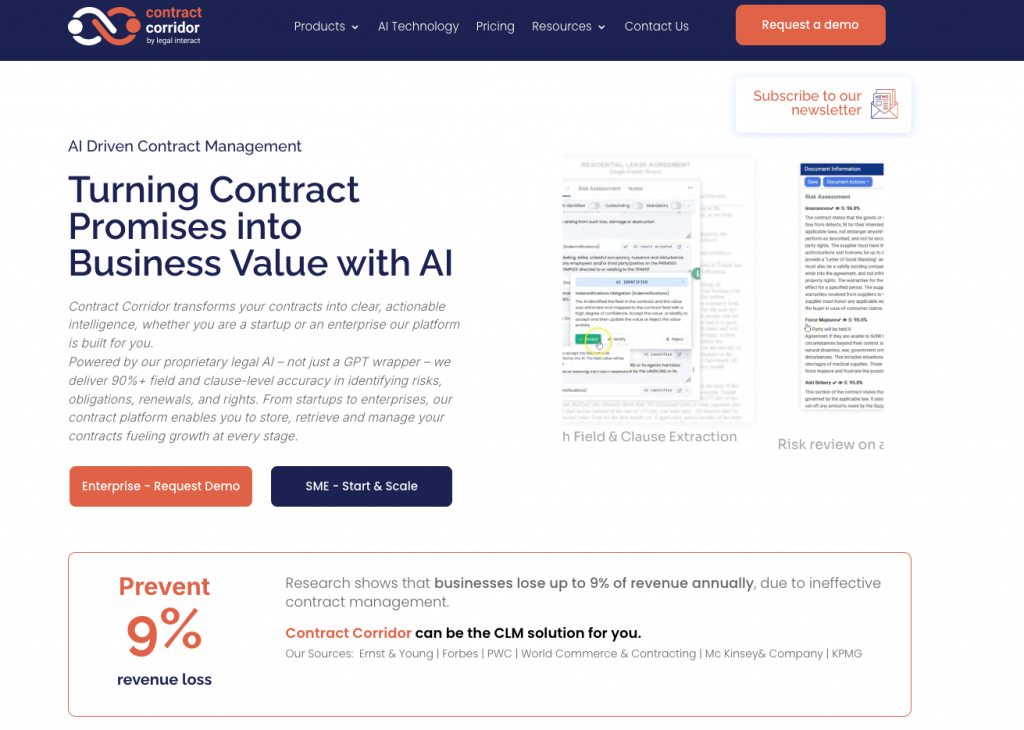Managing contracts can become complex when multiple teams, departments, or suppliers are involved. Many businesses struggle with scattered paperwork, unclear approval processes, and missed renewal dates. This is where digital solutions come in handy. With tools like contract management lifecycle software, businesses can handle contracts from start to finish in a more structured and efficient way.

What Contract Management Software Does
Contract management software helps store, track, and manage all agreements in one place. It ensures every contract follows a clear process from creation to completion. These systems are designed to keep important documents organised, making it easier to find them when needed.
Instead of spending hours searching for files or chasing signatures, users can set up automated reminders and workflows. For instance, when a contract is close to expiring, the software alerts the team. This simple function helps prevent missed renewals and potential losses.
Why Businesses Are Switching to Digital Systems
The move from paper-based processes to contract management systems saves both time and money. Paper contracts can get misplaced, damaged, or forgotten. With digital storage, every document is protected, backed up, and accessible from anywhere.
Teams no longer need to email drafts back and forth. Instead, they can collaborate in real time, track edits, and manage approvals securely. This change not only reduces mistakes but also builds a more professional image for the company.
Another advantage is compliance. Many industries have strict rules around how contracts are handled. A proper system ensures all records meet those standards. Auditors can quickly review the data, saving everyone time and avoiding fines.
How Automation Makes Contract Handling Easier
Automation plays a key role in modern contract management. Simple repetitive tasks like sending reminders, tracking signatures, and flagging expiry dates can all run automatically. This reduces pressure on staff and ensures nothing is forgotten.
Imagine a business with hundreds of suppliers. Without automation, tracking all agreements would be impossible. With software, every step is logged. From the moment a contract is drafted to the final approval, there’s a digital trail showing who did what and when. This gives managers peace of mind and helps with accountability.
Custom Workflows That Match Business Needs
Each company has its own way of managing contracts. Some need multiple approval stages, while others only require one sign-off. A flexible system allows users to create workflows that suit their process.
For example, a retail chain might need contracts approved by both the store manager and the finance team before they become active. A well-structured system can automate these steps and notify each person at the right time.
These features don’t just improve efficiency. They also make it easier for staff to follow consistent procedures, reducing the risk of errors.
Benefits for Small and Large Companies
Whether it’s a small startup or a large enterprise, contract management software helps everyone stay organised. Smaller businesses benefit from lower administrative work, while larger firms handle high volumes of contracts without confusion.
The key difference is scalability. The same platform can grow with the company, adding more users, departments, and features over time. There’s no need to replace systems as operations expand.
The Role of Contract Management in South Africa
In regions with fast-growing business environments like South Africa, staying compliant and efficient is vital. Many local companies are turning to contract management software South Africa providers to keep up with rising competition and legal requirements.
A structured digital process helps meet regional regulations, from tax compliance to supplier documentation. It also ensures that cross-border contracts are handled correctly, with proper digital storage and timestamping for legal protection.
Real-World Example: Managing Supplier Contracts
Consider a manufacturing company working with multiple suppliers. Each contract includes delivery schedules, pricing, and service terms. If one supplier misses a delivery, the business needs quick access to the agreement to resolve the issue.
With contract management software, all these documents are available instantly. Managers can view the original terms, share them with teams, and take action immediately. This prevents delays and keeps the business moving smoothly.
The same applies to customer contracts. Businesses can track renewals, update pricing, or manage cancellations in a few clicks instead of relying on manual reminders.
Security and Data Protection
Contracts often contain sensitive information. A reliable management system protects this data with encryption and access controls. Only authorised users can view or edit specific files, reducing the risk of leaks.
Physical files can be stolen or damaged, but digital systems store backups in secure cloud servers. This not only protects information but also meets modern data privacy standards.
The Future of Contract Management
As more companies adopt automation and remote work, digital contract systems are becoming standard practice. Businesses that still rely on paper processes will find it harder to compete as others speed up operations and cut costs.
Implementing proper software doesn’t require advanced technical knowledge. Many solutions are designed to be simple and easy to use, even for teams new to technology. Once set up, the benefits become clear within weeks — smoother processes, fewer errors, and stronger compliance.
Final Thoughts
Contracts are at the heart of every business, from supplier deals to employee agreements. Managing them manually leads to delays, confusion, and unnecessary stress. Tools like contract management lifecycle software simplify this process by bringing structure, visibility, and control to every step.
When companies adopt contract management software and contract management systems, they reduce risk and save valuable time. For South African businesses, using contract management software South Africa options ensures compliance and local support.
These tools are not just for large organisations. Even small businesses can gain from organised workflows and secure storage. Managing contracts properly is not about adding complexity but about making daily operations easier, faster, and more reliable.